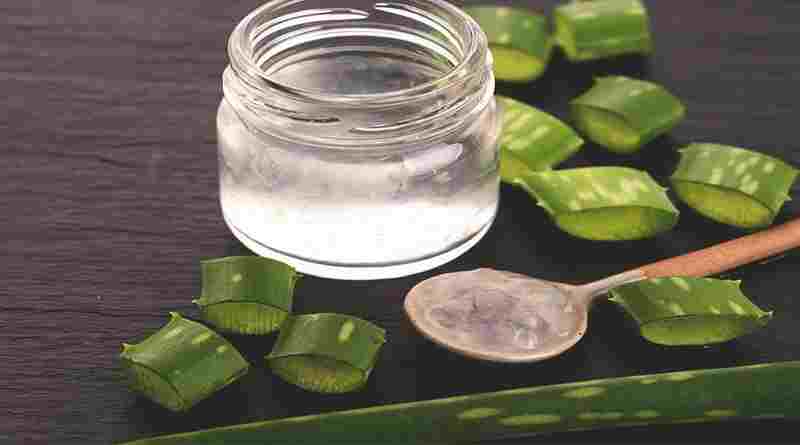Aloe vera juice is produced from the succulent aloe vera plant, known for its soothing healing properties. The juice is typically extracted by crushing the plant’s thick leaves to release the liquid, which is then carefully filtered to remove any impurities.
In recent years, aloe vera juice has gained popularity as a natural remedy for various health issues. Its numerous benefits have been acknowledged by health enthusiasts and medical professionals alike, making it a staple in many wellness routines. This process ensures that the juice retains its beneficial compounds, such as vitamins, minerals, and antioxidants, while eliminating unwanted substances like aloin, a natural component that can be harsh on the digestive system.
This article will delve into the nutritional profile of aloe vera juice, its health benefits, how to consume it effectively,
Nutritional Profile of Aloe Vera Juice
| Nutrition Facts | |
|---|---|
| Serving Size: 10 fl oz (300g) | |
| Aloe Vera Juice Drink | |
| Amount Per Serving | Calories 45 |
| Total Fat 0g | 0% |
| Saturated Fat 0g | 0% |
| Trans Fat 0g | |
| Polyunsaturated Fat 0g | |
| Monounsaturated Fat 0g | |
| Cholesterol 0mg | 0% |
| Sodium 23.8mg | 1% |
| Total Carbohydrates 11.3g | 4% |
| Dietary Fiber 0g | 0% |
| Sugars 11.3g | |
| Protein 0g | |
| Vitamin D 0mcg | 0% |
| Calcium 23.8mg | 2% |
| Iron 0.5mg | 3% |
| Potassium 0mg | 0% |
| Caffeine 0mg | |
| *The % Daily Value (DV) tells you how much a nutrient in a serving of food contributes to a daily diet. 2000 calories a day is used for general nutrition advice. | |
Health Benefits of Aloe Vera Juice
Rich in Nutrients
It is a powerhouse of essential vitamins, minerals, and amino acids. It contains vitamins A, C, E, and B12, as well as folic acid and choline. These vitamins play a crucial role in supporting immune function, skin health, and the production of red blood cells. Moreover, It is rich in minerals like calcium, magnesium, zinc, and potassium, which are vital for maintaining healthy bodily functions.
In addition to these nutrients, aloe vera juice also contains a range of amino acids, including seven of the eight essential amino acids that the body cannot produce on its own. These amino acids are the building blocks of proteins and are necessary for tissue repair, muscle growth, and overall cellular health.
Supports Digestive Health
One of the most well-known benefits of aloe vera juice is its ability to support and improve digestive health. Aloe vera contains natural enzymes that aid in the breakdown of sugars and fats, promoting better digestion and nutrient absorption. It is an excellent remedy for individuals suffering from indigestion, acid reflux, or irritable bowel syndrome (IBS).
Moreover, aloe vera juice has a gentle laxative effect, which can help alleviate constipation. The plant’s high water content and mucilage help to soften stool and promote regular bowel movements, making it a natural alternative to over-the-counter laxatives.
Additionally, it has been found to soothe the lining of the digestive tract, making it beneficial for individuals with stomach ulcers or inflammatory bowel diseases. The anti-inflammatory properties of aloe vera can help reduce irritation and promote healing in the gut.
Boosts Immune System
Aloe vera juice is packed with antioxidants, compounds that help protect the body from oxidative stress and free radical damage. Free radicals are unstable molecules that can damage cells, leading to chronic diseases and premature aging. By neutralizing these harmful molecules, antioxidants help strengthen the immune system and reduce the risk of illness.
This aloe vera also contains polysaccharides, which are complex sugars that have been shown to enhance immune function. These polysaccharides stimulate the activity of white blood cells, which are responsible for defending the body against infections and diseases. Regular consumption of aloe vera juice helps to bolster the body’s natural defences and keep you healthy.
Promotes Skin Health
While aloe vera is widely known for its topical benefits, drinking aloe vera juice can also positively impact your skin from the inside out. The vitamins and antioxidants and help protect the skin from damage caused by UV rays, pollution, and other environmental factors. This can help prevent premature aging and keep the skin looking youthful and radiant.
Aloe vera juice also has hydrating properties, which can help to keep the skin moisturized and prevent dryness. It is particularly beneficial for individuals with dry or sensitive skin, as aloe vera juice can help to soothe irritation and reduce redness.
Furthermore, aloe vera juice can aid in the healing of skin conditions such as acne, eczema, and psoriasis. Its anti-inflammatory properties can help reduce inflammation and promote the healing of damaged skin. Drinking aloe vera juice regularly can, therefore, lead to more precise, healthier skin.
Read Article: How to Treat Skin Wrinkles on Face at Home?
Supports Weight Loss
Aloe vera juice has gained popularity as a natural weight loss aid thanks to its ability to boost metabolism and improve digestion. The enzymes in aloe vera juice help to break down fats and sugars, which can prevent the accumulation of excess fat in the body. Additionally, it can help regulate blood sugar levels, which can prevent cravings and overeating.
Moreover, aloe vera juice has a natural detoxifying effect, which can help to cleanse the digestive system and eliminate toxins from the body. It can lead to improved digestion and a reduction in bloating, making it easier to achieve and maintain a healthy weight.
While aloe vera juice is not a magic weight loss solution, it can be a helpful addition to a balanced diet and exercise routine. Its ability to improve digestion, boost metabolism, and regulate blood sugar levels can contribute to healthy weight management.
Supports Cardiovascular Health
Aloe vera juice has been shown to impact cardiovascular health positively. The plant contains compounds that help lower cholesterol levels and reduce the risk of heart disease. One study found that aloe vera juice can help decrease levels of LDL (bad) cholesterol and increase levels of HDL (good) cholesterol, which can reduce the risk of atherosclerosis, a condition characterized by the buildup of plaque in the arteries.
In addition to its cholesterol-lowering effects, aloe vera juice also has anti-inflammatory properties. These properties can help reduce inflammation in the arteries and improve blood circulation, lowering blood pressure and reducing the risk of heart attack and stroke.
Furthermore, aloe vera juice contains beta-sitosterol, a compound that has been shown to lower cholesterol levels and support overall heart health. Regular consumption of aloe vera juice can, therefore, contribute to a healthy cardiovascular system.
Detoxifies the Body
Aloe vera juice is a natural detoxifier, helping to cleanse the body of toxins and impurities. The juice has a high-water content, which can help to flush out toxins from the digestive system and promote the elimination of waste. Aloe vera can lead to improved digestion, increased energy levels, and better overall health.
In addition to its detoxifying properties, aloe vera juice contains compounds that support liver function. The liver is responsible for detoxifying the body, and aloe vera juice can help enhance its function, allowing it to remove toxins more effectively.
Regular consumption of aloe vera juice can help cleanse the body, improve digestion, and support overall health.
Supports Oral Health
Aloe vera juice has natural antibacterial and anti-inflammatory properties, which make it beneficial for oral health. It can help reduce plaque buildup, prevent gum disease, and promote healthy teeth and gums.
In addition, aloe vera juice can soothe oral ulcers and reduce inflammation in the mouth, making it an effective natural remedy for individuals suffering from conditions such as gingivitis, periodontitis, or mouth sores.
Moreover, aloe vera juice can help to freshen breath and prevent bad breath, making it a natural alternative to commercial mouthwashes.
How to Consume Aloe Vera Juice
Dosage
Typically, a recommended dose is 2-4 ounces of aloe vera juice daily. It’s best to start with a smaller amount to assess your body’s tolerance and gradually increase as needed.
Best Time to Drink
For optimal results, aloe vera juice can be consumed on an empty stomach in the morning. This can enhance absorption and effectiveness.
Tips for Incorporating into Your Diet
Aloe vera juice can be added to smoothies, juices, or even taken straight. Mixing it with other flavorful ingredients can help mask its strong taste.
Possible Side Effects
While aloe vera juice is generally safe, excessive consumption may lead to diarrhea or stomach cramps. It’s important to monitor your body’s response and adjust intake accordingly.
Conclusion
Aloe vera juice is a powerful natural remedy that offers a wide range of health benefits. From supporting digestive health and boosting the immune system to promoting skin health and supporting cardiovascular health, aloe vera juice is a versatile and beneficial addition to any wellness routine. By incorporating aloe vera juice into your daily diet, you can harness the healing power of this ancient plant and enjoy improved health and well-being.
As with any supplement, it’s important to consult with a healthcare professional before adding aloe vera juice to your diet, especially if you have any underlying health conditions or are taking medication. However, for most individuals, aloe vera juice is a safe and effective way to support overall health and wellness naturally.




